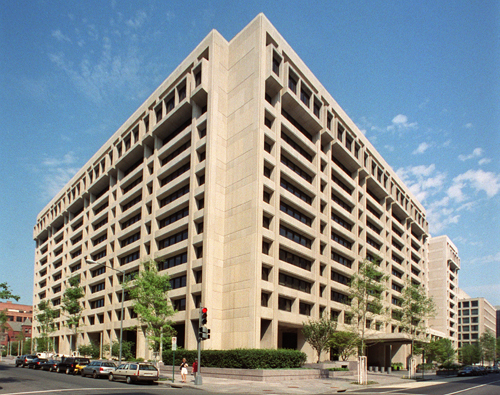News
Medical headway on virus to boost economic revival: IMF

The International Monetary Fund sees little evidence that China’s central bank has deliberately reduced the value of the nation’s currency. (File Photo By International Monetary Fund/Wikimedia commons, Public Domain)
ANKARA – Faster progress on medical solutions against the coronavirus disease 2019 (Covid-19) could quicken countries’ economic recovery, projected to add almost USD9 trillion to global income by 2025, the IMF’s managing director has said.
During a news conference following an annual meeting with the World Bank late on Wednesday, Kristalina Georgieva said strong international cooperation on vaccine development and distribution was needed now more than ever.
“Nine months into the pandemic, we are still struggling with the darkness of a crisis that has taken more than a million lives,” she said.
Though the picture over the past few months has become less dire, the IMF continues to project the worst global recession since the Great Depression, Georgieva warned.
“Growth is expected to fall 4.4 percent this year and over the next five years, the crisis could cost an estimated USD28 trillion in output losses,” she said.
Policy recommendations
According to the IMF, there are three priorities that policymakers should take into account during the pandemic.
Underlining that essential measures to protect lives and livelihoods should continue, Georgieva said, “A durable economic recovery is only possible if we beat the pandemic everywhere.”
She said stepping up vital health measures would be as important as fiscal and monetary support to households and firms.
“These lifelines, such as credit guarantees and wage subsidies, are likely to remain critical for some time,” she added.
Secondly, Georgieva highlighted the need to build a more resilient and inclusive economy with public investment, especially in green projects and digital infrastructure, which could be a game-changer.
“It has the potential to create millions of new jobs while boosting productivity and incomes,” she said.
Dealing with debt would be the third priority.
Global public debt is projected to reach a record high of 100 percent of gross domestic product (GDP) in 2021.
“Addressing this issue over the medium term will be critical. But for many low-income countries, urgent action is required now,” she said.
Given their heavy debt burdens, these countries are now struggling to maintain vital policy support, she added.
The global financial body reached more than USD280 billion in lending commitments – more than a third of that approved since March. (Anadolu)





















